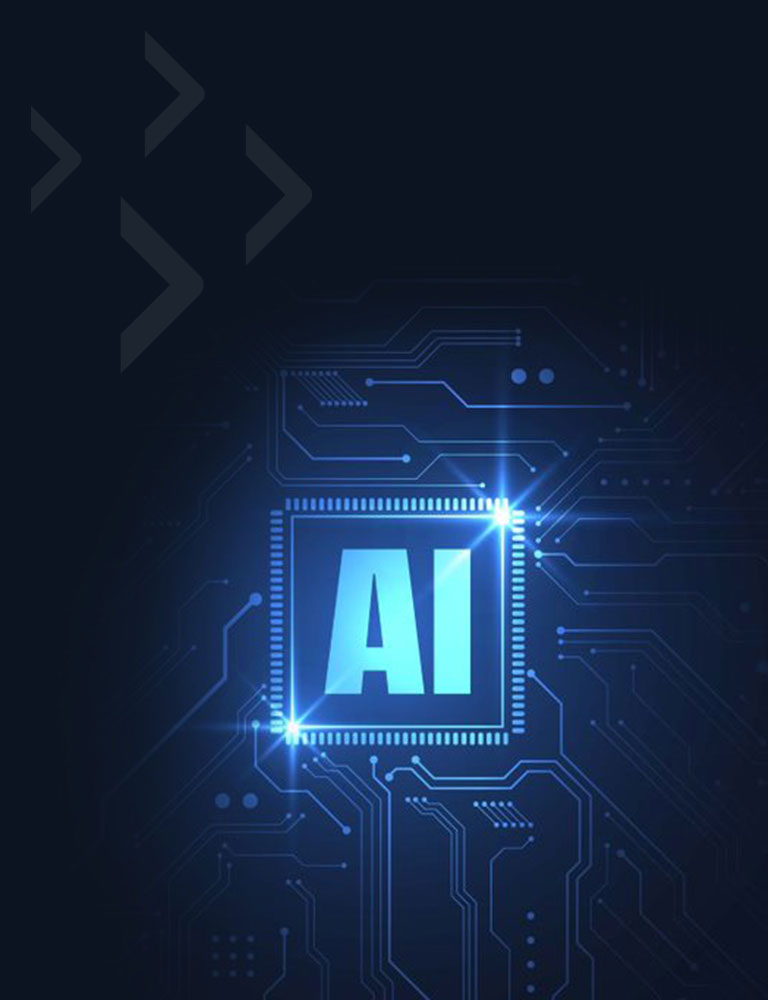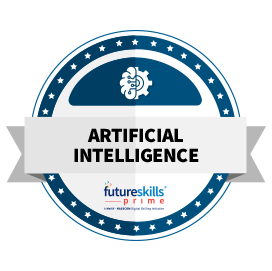Course Provider

What will you learn in Data Science through Python course?
The course culminates with the execution of a capstone project. The project is designed in a meticulous way. It reinforces all the technical concepts that are learned previously. Through the execution of the project the participant learns the most important tasks of ML: Training-Validating-Testing-Deploying of the model.
Data Science through Python
-
 Skill Type
Emerging Tech
Skill Type
Emerging Tech -
 Domain
Artificial Intelligence
Domain
Artificial Intelligence -
 Course Category
Deepskilling Course
Course Category
Deepskilling Course -
 Placement Assistance
Yes
Placement Assistance
Yes -
 Certificate Earned Joint Co-Branded Participation Certificate & Partner Completion Certificate
Certificate Earned Joint Co-Branded Participation Certificate & Partner Completion Certificate -
 Nasscom assessment Coming Soon
Nasscom assessment Coming Soon -
 Course Covered under GoI Incentive
Yes
Course Covered under GoI Incentive
Yes -
-
 Course Price
INR 15,500+ 18% GST
Course Price
INR 15,500+ 18% GST -
 Course Duration
200 Hours
Course Duration
200 Hours
-
Why should you take Data Science through Python course?
- Data is the new fuel. Present age is driven by the data. Social networking has revolutionized the way people across the world interact and share the information. Huge volume of data is being generated by people across the world. This innocuous looking data holds trends and information across the business verticals.
- This course teaches in detail how to derive the hidden knowledge from the data through ETL and EDA processes. Participants will know various ways of handling to enrich data and perform the analysis. Learners can make predictions based on the data, and these predictions help in taking learned decisions.
- Job prospects will leapfrog with this course of Data Science. Lots of organizations across sectors are looking for professionals to work on their data. After completing this course, participants will find themselves capable to match industry expectations
Who should take Data Science through Python course?
This course is designed for those people who are looking at embarking on a Machine Learning career. Professionals who are working in other technologies but want to shift to Machine Leaning can also join this course. It is recommended that the participants should have basic knowledge of Mathematics and Statistics.
Curriculum
- Data Representations, Data Trends, Data Spread, Probability, Sample, Population, Confidence interval, Estimation, Bayes theorem, Binomial, Poisson, and Normal distribution, Correlation and covariance, Matrices.
- List, Tuple, Set, Dictionary, Comprehensions, File operations. Modules for data Science: Numpy, Scipy, Pandas, Matplotlib, SKLearn etc.
- Introduction, Relevance, Need, Risks, Opportunities, Advantages, Disadvantages, Ethics, Job roles and responsibilities
- Structured and unstructured data, Data collection, Databases, Data warehouse, Data Lakes, Other data repositories. Numeric- Continuous, Discreet and Non-numeric. Data sets, ETL, EDA, Missing data, Data collection, Data Visualization, Data Visualization tools: Tableau. Data dashboards, BI, Cloud as data repository, Data modelling. Big data tools: Hadoop, Apache Spark.
- Understanding the relationship between Artificial Intelligence, Machine Learning and Data Science. Data sets. Types of learning: Supervised, Unsupervised and Reinforcement learning, Feature Engineering. Pre-processing of data. Analysis of data. Outliers. Data scaling. Bias and Variance. Confusion Matrix.
- Linear and Multiple Regression - Variable Transformations, Selection, Overfitting, accuracy of the model. Analysing categorical data, Decision trees, Random Forest, Logistic regression, SVM
- Unsupervised learning. Agglomerative and Divisive clustering, KMeans. Association: Market Basket Analysis, Association rules, Frequent sets, Apriori algorithm, Eclat.
- Bagging, Boosting and Stacking.
- Dimensionality reduction: Principal Component Analysis, Linear Discriminant Analysis, Missing Value Ratio, Low Variance Filter. Optimizing model, improving iteratively, Saving, Loading and Deploying model
- Perceptrons. Feed Forward Neural Networks. Forward propagation, Backpropagation. Tensor. Layer Abstraction, Neural Networks as a sequence of layers. Activation functions, Loss and Optimization. Library Installation: Keras, Tensorflow. Regression Models: Linear and Non-linear.
- Classification Models: Random Forest. SVM. Optimizing Models
- Capstone Project
Tools you will learn in Data Science through Python course
- Tableau
- Advanced Excel
- Jupyter
- Spyder
- Python IDE
- Keras, Tensorflow
FAQs
It ranges from One (1) month to Two (2) months
Any undergraduate student with Mathematics as a subject at the 10+2 level, is eligible to attend this course. It is expected that participants attend the course regularly
It is desirable to have a Laptop/Desktop. An internet connection is essential.
Virtual Instructor Led Training (VILT)
Regular fee for the course is Rs 15500/-. Please lookout for Introductory offers which will be made available from time-to-time.
Online payment mode
Joint Participation Certificate for Foundation course shall be awarded to all the participants nasscom Assessment (Gold, Silver or Bronze medal) Certificate shall be awarded to the successful candidates
It will add value to the profile. This will help the candidate get noticed by the IT companies
Successful candidates’ profiles shall be made available at the Career Services Portal of SSC nasscom through which placement opportunities are facilitated




